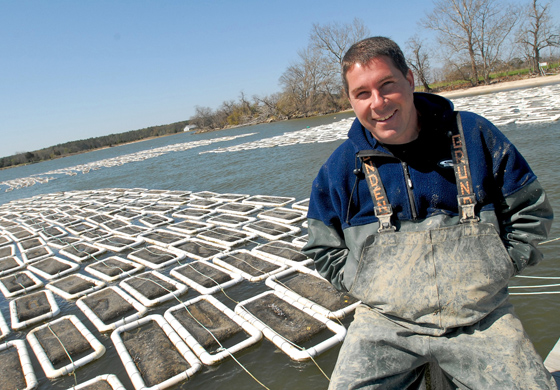Farmed oysters, mussels, clams and scallops audited by third-parties for pesticide use, water quality, seafloor impacts, protection of coastal environment and more
AUSTIN, Texas, 2015-1-30 — /EPR Retail News/ — Whole Foods Market is launching comprehensive standards for farmed bivalve mollusks, which include oysters, mussels, clams and scallops, all of which will now be recognized by the retailer’s Responsibly Farmed logo for easy shopping.
The seal signifies that each mollusk farm has been audited by a third party to ensure the industry-leading standards are being met, including prohibiting pesticides, monitoring water quality, protection of the coastal environment, evaluation of sediments on the seafloor and traceability from farm to store.
“As mollusks are becoming more popular and the seafood market more global, it’s increasingly important that our shoppers have responsibly sourced options they can trust,” said Carrie Brownstein, Whole Foods Market’s global quality standards coordinator for seafood, and the creator of these new standards. “With Whole Foods Market’s farmed and wild-caught seafood standards in place, and third-party audits of farms, we’re doing the homework for our customers. They can rest easy knowing that any seafood choice they make in our stores is a conscious one.”
Nationwide, Whole Foods Market has seen more than a 10 percent increase in oyster sales alone over the past two years, and expects Valentine’s Day to be the biggest oyster sales day of the year. As consumer interest continues to grow, the impact of buying responsibly sourced mollusks and other seafood becomes more important.
The new standards were developed following several years of research and collaboration with top scientists and progressive mollusk farmers. Like all of Whole Foods Market’s standards for farmed seafood, this multi-stakeholder approach ensures that the standards address all the important issues in mollusk production, set a high bar for environmentally responsible aquaculture, and are practical to implement on farms.
One of the most unique sections in Whole Foods Market’s mollusk standards is the requirement to evaluate the health of sediments on the seafloor under the farms to help protect bottom-dwelling animals and the ecosystem. If mollusks are grown too densely or in areas without enough water flow, wastes can build up that ultimately create sulfides, which are toxic to animals that live in the sediments.
These new mollusk standards are the latest addition to a huge selection of seafood options that carry the Responsibly Farmed label at Whole Foods Market. The retailer introduced its industry-leading standards for farmed salmon in 2007, and released aquaculture standards for all finfish and shrimp in 2008.
Of key importance to all Responsibly Farmed seafood standards at Whole Foods Market are traceability and third-party audits. With independent aquaculture auditors evaluating the farms and strict traceability requirements at every step in the supply chain, customers can feel confident that standards are being met and that they are purchasing the seafood they intended to purchase.
Experts
Seafood Quality Standards Coordinator
Carrie Brownstein develops standards to guide seafood purchasing for the Company’s stores throughout the United States, Canada, and the UK.
###
